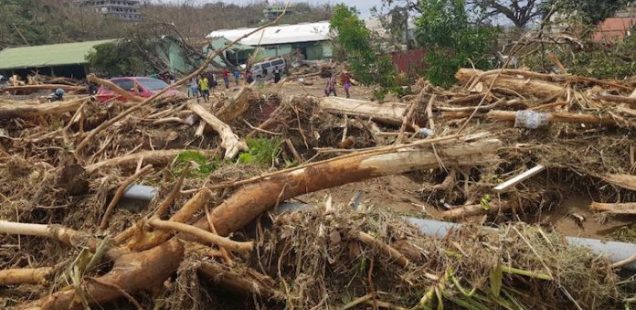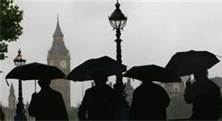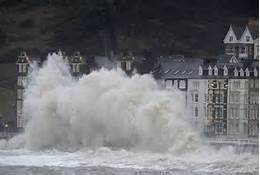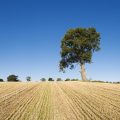
The End of the World
In the nearly twenty years I’ve been teaching in the US public schools, I’ve had quite a few kids walk into my classroom and tell me the world was coming to an end. They told me this before Y2K and they told me after 9/11. They told me whenever the church they went to told them the end was nigh. Whenever they said this to me, I would always tell them people have been predicting the end of the world for as long as people have been predicting. I would tell them not to worry. I would try to be as respectful as I could when I told them these things since I was very mindful that my students were only repeating what someone in their family or their church told them. The last thing I wanted to do was come off sounding smug or superior about mom, or Grandma, or their favorite pastor. Last week, however, when one of my fifth graders told me her mother told her the world was ending, I understood how her mother felt, and I wasn’t altogether sure she was wrong.
Like so many of my students, this particular girl’s family hails from Puerto Rico. The information she had about her family down on the island was sketchy. I believe she knew her people were all right, but many of my students are still missing family members. Our school is actually missing a student who went down to Puerto Rico before the hurricane and hasn’t been heard from since.
Some of my kids’ families have been able to get calls through. Some haven’t. Some of their families went to a shelter or a friend’s house on higher ground but others stayed in their homes to protect their property from weather and looters. Several of my kids’ families still couldn’t locate Grandma. They leave their mothers at home in tears each morning to come to school.
The pictures on the television screens aren’t making anyone feel any better either, pictures of what were once homes now piles of debris, pictures of streets where every single telephone pole is lying flat on the ground. My kids don’t read headlines, but I do. No power for up to six months. How might I live, I ask myself, without power for six months?
As if the Puerto Rican tragedy weren’t enough, the next largest group of my students comes from Mexico. Mexico, where quakes and tremors have terrorized the population for the past week. The kids whose families come from Mexico, however, all know their people are okay. The telephone lines are up, the cell phone towers are transmitting. You were all right as long as you hadn’t been in one of the buildings that melted around you as the ground shook, melted and then re-solidified into a seemingly impenetrable ruin of broken concrete that you prayed the rescuers could dig through in time to save you.
It wasn’t good in Mexico, but it wasn’t the end of the world. It did look like the end of the world on Barbuda and Dominica, on St. Martin and in the Virgin Islands. These normally lush places had been turned brown overnight as the leaves and fronds were ripped from the trees and the salt water rushed in over the land. These islands, whose most important, sometimes whose only source of income, is tourism have been brutally stripped of their assets. Hotels, marinas, guest houses, restaurants, and boats all tossed around by the winds or ruined by the waves. The people and the islands of the Caribbean, who grow things: sugar cane, tobacco, coffee, cacao, spices, and fruit, or try to attract Northerners chasing the sun and the sand, can now do neither. People’s livelihoods have been erased, obliterated in a few desperate hours.
But they’ll rebuild, right? Like always. They’ve had hurricanes like this before. Though this year’s hurricane season was worse than most. Though it isn’t over yet. And what if the same thing happens next year? The same pummeling, the same repeated pummeling days apart. You have to ask yourself, how many times can a place be decimated and rebuilt before people get tired and move on?
That’s the Caribbean, but up here on the US mainland, we have our problems, too. Vast swathes of Texas and Florida are completely water-logged. People’s homes and businesses have been destroyed. Insurance claims are rolling in.
Now here’s where I can really see the end of the world, or the end of our world as we know it. There’s already no such thing as private flood insurance. It’s the government who has to fund it and from what I hear the program is already several billion in the hole. If the federal flood fund is in bad shape already, what happens when the next big hurricane hits, or the one after that? How many more hurricanes will it take before the taxpayers start complaining about paying to rebuild someone’s home four times? How long before the proximity of your house to a flood plain becomes the equivalent of a preexisting medical condition?
When I lived in England, we foreigners used to make jokes about how the English were so boring they only ever talked about the weather. This wasn’t true, of course. The English talked about plenty of other things besides the weather though there did seem to be an awful lot of conversations about rain. But we were young. We were university students. We didn’t want to be fair. Our main goal was not to be boring.
Well, talking about the weather isn’t boring anymore. It’s terrifying and tragic. It’s brutal.
Over the last few weeks, I’ve found myself longing for a nice boring conversation about the weather, a conversation that doesn’t involve who the best relief agency is, or who I know who had to evacuate, or is your grandmother still missing? I wouldn’t even mind talking about the rain, a nice gentle rain, preferably, falling quietly over hill and dale, a rain that waters my garden but doesn’t rip it out by the roots, a rain that gives life rather than takes it away.
I’ll have these conversations again. I know I will, but I’m worried I’ll start to have more of the other ones. I worry that storms like this will be the new normal. I worry that despite the fact my house sits high on a rise, I’ll wake up one morning to find out I now live in a flood plain.





Excellent analysis and recognition of the calamities in Caribbean islands.
It may seem to be the end of the world to the victims.or their relatives.
But if there is a God, why does He create these natural disasters??
There is no doubt that if there is a big earthquake or volcanic event in the world, it is likely to occur somewhere else on our globe. Right now people in South Pacific’s islands of New Hebrides and Bali in Indonesia are threatened by active volcanoes, and being repatriated out of danger……..
Nice story, Linda.
Thank you.
Your thoughts tumble on to the page beautifully. It’s a good thing there is compassion in the heart of those dear kids’ teacher, and I hope they receive the embrace. Must be difficult to concentrate on common core standards, let alone recess.